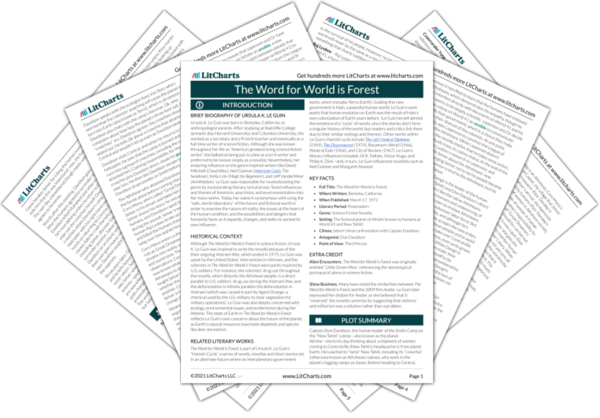Because the novella has hinted that violence always generates more violence in a cyclical fashion, Selver’s choice to fixate on Davidson’s violence against
him rather than his ability to hurt Davidson makes sense. Davidson’s violence is what motivates Selver’s violence, and Selver
needs to feel motivated if he wants to further retaliate against the humans. The structure of Athshean society once again demonstrates the Athsheans’ close ties to nature, as they rely on roots for shelter. When the humans cut trees down, they disrupt Athshean society.
